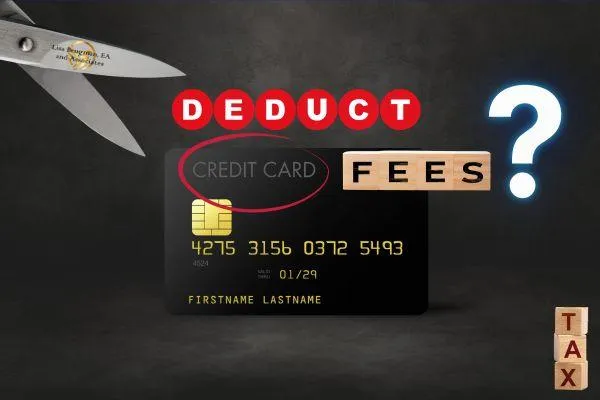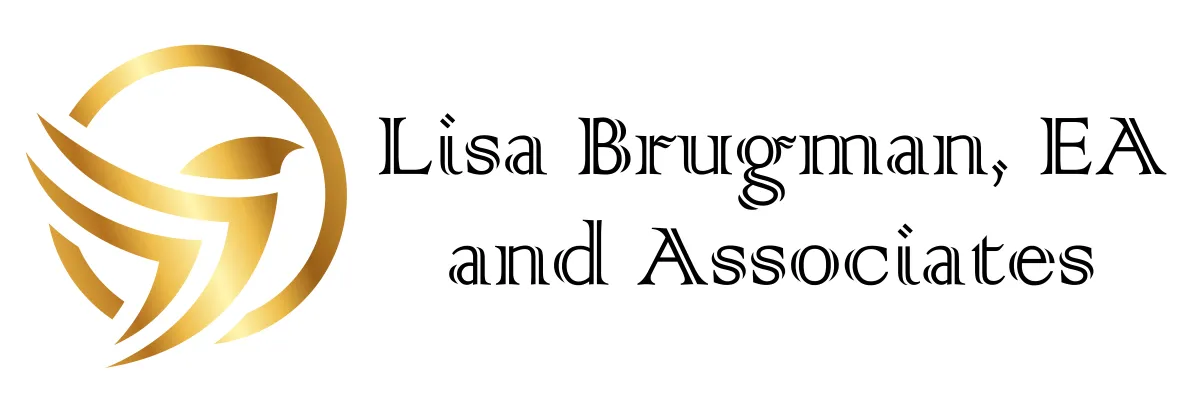BLOG

Deduct Credit Card Fees?
It's common for individuals to wonder if their credit card fees are tax-deductible, especially when these charges seem to appear almost monthly on their statements. Finance charges, monthly fees, late fees, and annual fees for the mere privilege of carrying a credit card can quickly accumulate. This raises the pertinent question of whether these fees can be written off during tax season. The answer largely hinges on how the credit card is used—personally, for business, or both.
Personal vs. Business Use: The Key Distinction
Personal Credit Card Fees
When credit cards are used solely for personal purposes, the fees associated with them are typically non-deductible. This includes all forms of charges—finance, monthly, late, and annual fees. The tax code does not offer any relief for personal credit card expenses, making them a non-factor in your tax deductions.
Business Credit Card Fees
Conversely, if a credit card is used exclusively for business purposes, the scenario changes favorably. Business-related credit card fees may indeed be deductible. However, the eligibility of these deductions is subject to certain conditions mandated by the tax code.
Conditions for Deducting Business Credit Card Fees
Legitimate Business Expenses
Firstly, the credit card must be used to purchase items or services that qualify as legitimate business expenses. These expenses need to be both ordinary and necessary for the operation of your business. An ordinary expense is one that is common and accepted in your industry, while a necessary expense is one that is helpful and appropriate for your trade or business.
Example: Jim, who runs a landscaping business, uses his business credit card to buy 2-stroke gasoline and pay for lawnmower blade sharpening. These expenses are both ordinary (common in the landscaping industry) and necessary (essential for the operation of his business).
Exclusive Business Use
The credit card in question must be used exclusively for business purposes. If a credit card is used for both personal and business transactions, it complicates the deduction process. For instance, if interest is charged on the unpaid balance of a card used for both personal and business expenses, it becomes challenging to segregate the interest attributable to business use from that attributable to personal use.
Best Practices for Business Owners
Separate Business Accounts
New business owners are advised to open a separate bank account exclusively for business transactions and to obtain a dedicated business credit card. This separation simplifies accounting and ensures that all transactions are easily identifiable as business-related, which is crucial for tax deduction purposes.
Ordinary and Necessary Expenses
Business bank accounts and credit card accounts are not only practical but also ordinary and necessary for business operations. This is true unless your business operates strictly on a cash basis, which is rare in today's digital economy. Therefore, all fees, interest, and other charges associated with these accounts can be eligible for tax deductions, provided they are used solely for legitimate business purposes.
Keeping Accurate Records
As always, maintaining complete and accurate records of your business transactions is paramount. Should the IRS ever question your deductions, having detailed records will substantiate your claims and ensure compliance with tax laws. This includes keeping receipts, bank statements, and any other documentation related to your business expenses.
Conclusion
In summary, the deductibility of credit card fees is contingent upon the nature of the credit card's use. Personal credit card fees are generally non-deductible, while fees associated with a business credit card used exclusively for business expenses may be eligible for deduction. By adhering to best practices such as using separate accounts for business and personal transactions and maintaining meticulous records, business owners can maximize their tax deductions and streamline their accounting processes.
Understanding these nuances can help you make informed decisions about your credit card usage and ensure you are optimizing your tax situation effectively.
If you are still unsure about your situation and want help, you can click this link to set an appointment to speak with an expert at Lisa Brugman EA & Associates.
https://storage.googleapis.com/msgsndr/Y3wru9o2agtnTx66z5uZ/media/650d578315fdd01eb024474b.png
https://storage.googleapis.com/msgsndr/Y3wru9o2agtnTx66z5uZ/media/650d578215fdd056b424474a.jpeg






